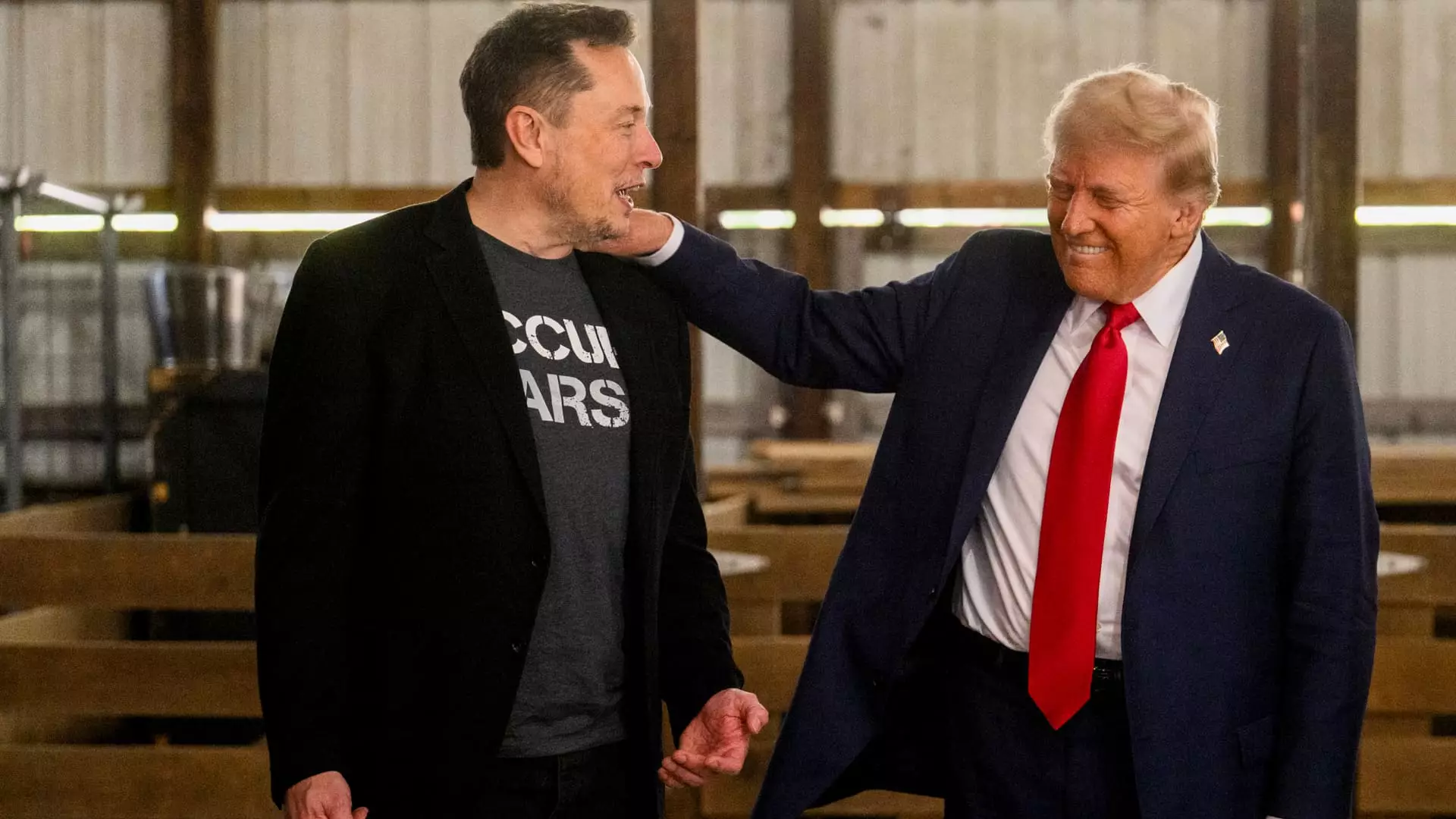In recent years, the intersection of business and politics has become increasingly pronounced, with figures such as Elon Musk emerging not only as industry leaders but as pivotal players in political discourse. Recently, Musk’s involvement in the political arena has come to the forefront, particularly through his close association with President-elect Donald Trump. This relationship underscores a growing trend where entrepreneurial success translates to political engagement, raising questions about the implications for governance in the United States.
In an unprecedented move, Elon Musk accompanied Donald Trump to a meeting with the House Republican conference on a Wednesday in Washington, D.C. This gathering marked the first of its kind following the recent election, positioning Musk as a significant influence in the incoming administration. Flying together on Trump’s private jet from Florida, the partnership illustrates Musk’s mounting power and presence within political circles. The media buzz surrounding this meeting reveals not only the unique dynamics of Trump’s administration but also highlights Musk’s increasing clout as the world’s wealthiest individual.
Musk has been linked to Trump on multiple occasions, serving as a prominent ally and supporter during the campaign leading to Trump’s electoral victory. The two have shared a series of discussions in recent weeks, indicating that Musk is not just an observer but a key player in shaping the contours of Trump’s upcoming presidency. His proximity to Trump points to a blending of business acumen and political strategy that could have lasting impacts on policy-making.
Adding to his political agenda, Trump revealed plans to create a “Department of Government Efficiency,” declaring Musk and entrepreneur Vivek Ramaswamy as leading figures in this initiative. The purpose of this commission is clear: to streamline government operations and reduce bureaucratic red tape. Musk, known for his innovative spirit, expressed confidence in the project, suggesting that it would “send shockwaves through the system” of government bureaucracy.
This initiative encapsulates the broader trend of leveraging entrepreneurial strategies to address government inefficiency. However, it also raises critical questions about the feasibility of dismantling established bureaucracies and the potential societal ramifications. While Musk’s reputation may pave the way for acceptance among certain political factions, critics may question whether an approach grounded in business principles can adequately address the complexities of governmental operations typically managed by seasoned public servants.
As the Republican Party prepares to reclaim power not only in the White House but also in the Senate, the implications of a Musk-influenced administration cannot be understated. Following a decisive shift towards conservatism in the recent elections, Republican leaders are poised to shape legislation and policy directions that may reflect Musk’s ideologies. Current discussions about leadership elections signal a transition period, as Mike Johnson is expected to continue in his role as Speaker of the House.
Understanding the context of these shifts is paramount. The power dynamics within Congress could be predominantly influenced by the priorities that Musk and his allies represent. This political landscape could potentially align with Musk’s vision for a less-regulated environment—one that, while appealing to business interests, may imperil essential social frameworks.
Interestingly, attentive observers noted that the traditional post-election meeting between the outgoing and incoming presidents is juxtaposed against a backdrop of tension. While Biden’s concession on election day demonstrated a commitment to democratic traditions, Trump’s previous refusal to accept election results highlighted a stark deviation from these norms. Additionally, former First Lady Melania Trump’s absence symbolizes a broader disconnect in the transitioning leadership narrative.
Despite the seemingly chaotic political environment, the involvement of business leaders like Musk suggests a potential redefinition of how governance functions in the modern era. The interplay between progressiveness in business and conservatism in governance may herald a transformative phase in American politics. However, the balance between efficiency and accountability remains a complex challenge that both Musk and Trump will need to navigate carefully.
Ultimately, the involvement of influential business figures like Musk in governmental affairs raises vital questions about the future of American democracy, the role of wealth in politics, and the efficacy of blending entrepreneurial zeal with conventional political practice. As these developments continue to unfold, the world watches closely, anticipating the implications of Musk’s burgeoning influence on governance.

Leave a Reply